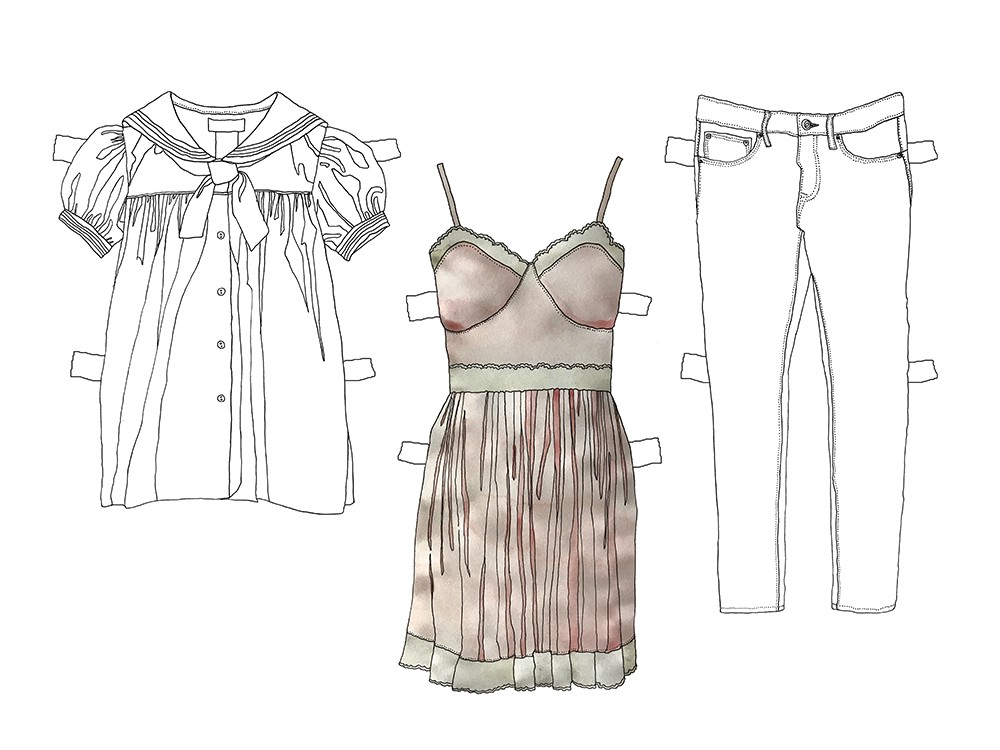Lafayette Avenue, Brooklyn

Illustration: Forsyth Harmon
I will forever hold wearing a sailor dress to Molly Warren’s ninth birthday party as one of the great humiliations of my childhood. The mortification at realizing every other girl was in tracksuit bottoms, or jeans, or some other variant of ‘clothes to climb trees in’, was not so much one of failing the party’s dress code, but failing my own. I was not a sailor dress sort of girl. I was a tree climbing sort of girl. But here I was, a travesty of myself, in Laura Ashley knockoff navy polyester and white ribbons and I would be climbing no trees. It was the first time I’d known the specific, painful effort of having to go on as if this were the outfit you’d intended, of having to will an armor of dignity, as if this were really you.
When I saw you out the window of the cafe, you looked how I felt at Molly Warren’s ninth birthday party. Not a sailor dress, but a transparent sugar-pink slip through which wide areolae announced themselves completely. Each New York summer I have this same, abrupt realization of breasts — specifically, how it is that braless ones shivering about beneath thin fabric look both brazen and vulnerable but most of all, just very there. Each New York summer I wonder, is this what it’s like to be a straight teenage boy? To be permanently slightly hostaged by a part of the body? And each New York summer I remind myself that public female toplessness has been legal in this state since 1992.
You were in your early twenties and your outfit was an ironizing cute. A nylon dress that looked like a babydoll nightie from the Seventies, peroxide blonde hair, much eyeliner. You reminded me of Courtney Love in the 90s: the little dresses and their frills and collars a mockery of docility and sweetness, there to signal a bad girl in good-girl drag. (“Oh make me over/I’m all I wanna be/ A walking study/ In demonology.”)
The most conspicuous thing about you, though, wasn’t your clothes. It was your self-consciousness — like you hadn’t decided what the story of yourself was today. Or, that you were telling yourself one, insisting on it, but just couldn’t make it fit. You’d been determined to be this person in a see-through dress in the hot afternoon, and you’d left the house and now I could still see the determination in you: the very upright posture, the flexion of your lips. I thought of that bit in Four Quartets: “the look of flowers that are looked at.” You looked like a girl who was looked at.
You paused outside the cafe, looked at your phone, then came in and ordered an iced coffee. But, as if admitting that you couldn’t sustain it, this story of yourself, you were gone after a few minutes. There’d been a hunted look to you, as you gulped your drink, like someone was watching you, which I was. And then you left, and I knew you were absolutely going home to change. If I could have silently transmitted this to you, I would have: that in ten, or even five, or even two years, you’d look at a picture of yourself in this same outfit, on this same day, and marvel at how good you looked and why it was you hadn’t believed it.
